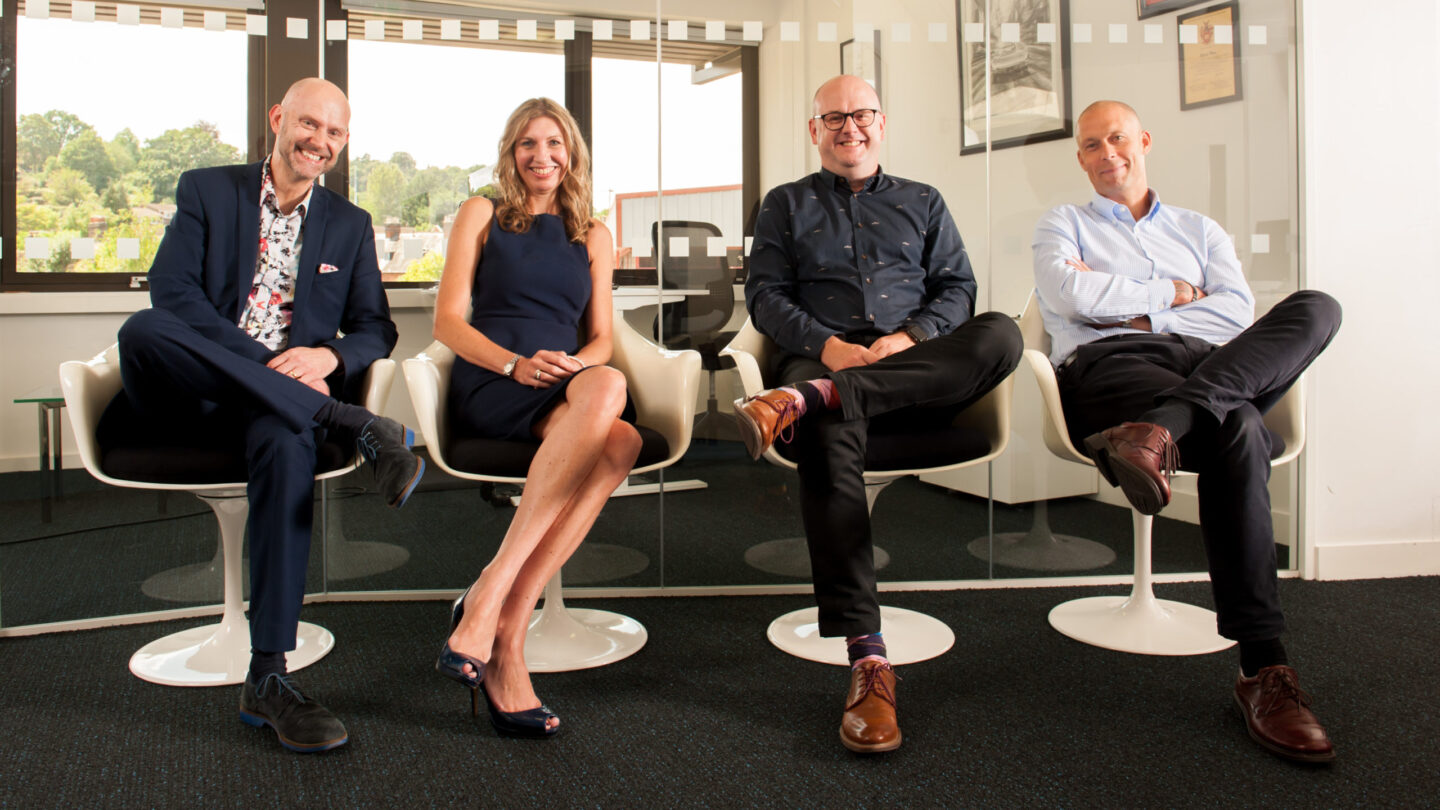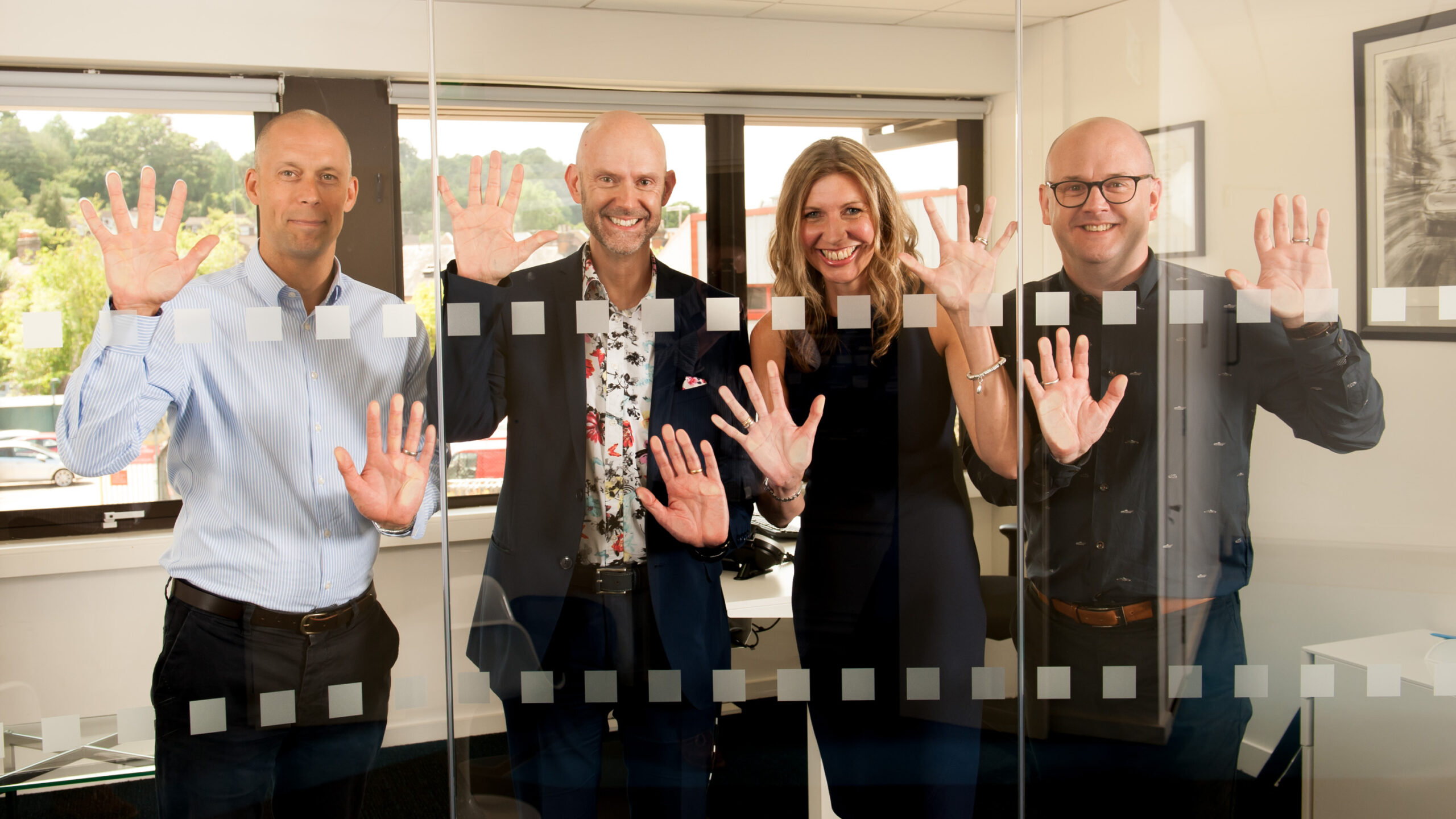Strategy, Legal & Operations
Ramsac: ‘We are running a marathon – it’s not the time to trim business muscle’

In our Your Story series, we speak to business owners about the challenges they’re facing and the steps they’re taking to overcome them.
Rob May is the founder and managing director of Ramsac, an outsourcing IT firm that specialises in cybersecurity and is based in Godalming, Surrey. Here, he talks about the challenges he’s faced and how holding steady throughout the adjustment period has resulted in the growth of his business.
Since the coronavirus (COVID-19) disruption, began I don’t think I’ve ever worked so hard. I think that’s true for all of my team.
I’ve learned that communication is vital during periods of change or uncertainty. I’ve been putting my arm around our staff, and reaching out to clients to try and communicate that it’s business as usual, even though everything has changed.
And the hard work has paid off. We’ve taken on new staff and when our business year ended recently, we’d reached our targets – but how did we do it?
Avoid the knee-jerk reaction to cut back if you can and pivot your specialism instead
Many of our competitors furloughed staff too early, and too easily.
How do I know this?
Well, because we have won business because of it. Our competitors just weren’t able to respond. This new business was a happy accident, I should add.
We certainly didn’t go looking to see which of our competitors were cutting back. Our view was simply that, more than ever, people needed our help.
What I’m seeing with competitors right now is a rapid un-furloughing of staff. They have realised there is work to be done and customers out there.
Don’t get me wrong. I know it’s essentially impossible, making difficult decisions like these. But it’s important to remain level-headed and make use of your experience.
“Our view was simply that, more than ever, people needed our help”
My business has been going for 30 years. I’ve seen recessions come and go. And I’ve seen that people are often anxious to cut costs quickly.
Right now there is pressure to run as lean an operation as possible. We are running a marathon, and now is not the time to trim muscle. The knee-jerk reaction from some our competitors has been to do just that.
Instead, managers within a business need to look at what they do and try to work out how they can utilise the staff they have to deliver an adapted service.
The new normal affects everything from the operations of the business to how clients are handled.
This involves rethinking what you do.
Traditionally, we are cybersecurity experts, but we recently started a part of our business dedicated to business transformation. We have started to ramp that up more quickly than we anticipated given the current situation.
How can your business be transformed operationally so it can provide for a new normal where a handful of people are in the office, and people are working from home?
We have to adjust, and think: “What is it that I do and what can I do it in this new landscape?”

Rob May (second from left) and his team have been busy supporting clients
Respond to client needs to facilitate long-term growth
It’s turned out that, because we are IT advisers and cybersecurity experts, our clients have really needed us to help with the switch to homeworking following office closures.
I’ve had conversations with clients where they’ve said: “We’re cancelling all of our direct debits – but we’ve not cancelled yours because you’re a key supplier.”
From that point of view, we’re really fortunate.
But there’s a flipside to this, in that we’ve had thousands of extra calls in the first few weeks from people needing help and support.
We didn’t receive a penny from that massive increase in work, and that’s where the need for the additional staff came from.
While the influx of support calls has challenged our business, in the end I’m happy with what we did. You’ve just got to do right by your customers.
A large part of your resilience during the coronavirus disruption will be about what you can do to make sure the customer is happy and successful. It’s always going to be your customers’ success that drives your own success.
I never forget that.
We’ve been trying to educate clients about the challenges they might be having, because we have the unique oversight of many clients with the same challenges.
And then we’re trying to help them with that. As they say, sharing is caring – and if we’re all in this together then sharing any and all information is vital.
Learn how to be a virtual manager and bring your team closer
I record a video message every morning and aim to have it in colleague’s inboxes by 7.30am. When they start their day, they have a briefing from me.
It’s about staying in touch but also about sharing positivity. It’s a discipline, and people really like it.
I’ve been wanting to do this kind of thing for ages, to be honest. Even before the coronavirus disruption. But I was always busy with something else.
“The irony has been that, as a company, we’re all a lot closer because of the fact we’re no longer physically in contact with each other”
It’s a bit of a cliché but the disruption of recent months has meant I’m working more in the business, rather than on the business. I’m more present in my employees’ work life and this has proved to be a great thing for them and for me.
When the coronavirus disruption began, my messages were very much around reassurance, because people needed that.
Now it’s about making sure they continue to feel connected and in the loop. We’re actually having far more staff briefings than we would ordinarily in the office, and that’s good.
The irony has been that, as a company, we’re all a lot closer because of the fact we’re no longer physically in contact with each other.
I did a virtual town hall meeting yesterday, and got a lot more attention than I would’ve done if I’d been in a room speaking to the 70-odd people.
It’s not all perfect. What you don’t get in a virtual conversation is energy from the other person. I’m feeling this in particular when it comes to calls with clients or prospects. But it works fine most of the time.
We’re even thinking about what all this means for our office space.
As we’re approaching the end of our lease, we had been thinking about expanding the size. But now we’re thinking it’s going to be fine, because we don’t necessarily need everybody in the office.
My top takeaways
Here’s what’s worked best for our business.
1. Try to avoid a knee jerk reaction
The government’s been extraordinarily helpful for businesses with the Job Retention furlough scheme, and similar.
But while taking advantage of grants certainly makes sense, it’s worth remembering some of these schemes aren’t mandatory.
Some of our competitors made a costly mistake furloughing too soon.
2. Prepare for the new normal
Yes, this phrase is becoming a cliché. But it’s a useful way of looking at the world.
For the next few months at least, businesses are going to have to continue operating in a different way. And they might even need to make further adjustments, such as reintroducing some staff back into the physical premises while retaining a remote workforce.
Start thinking and planning for this immediately and continue that planning for as long as required to ensure you retain a competitive advantage that focuses on growth.
3. Embrace digital transformation
The world of business has undergone years of digital transformation in two months, but this is only the tip of the iceberg.
Pretty much every business task can be digitally transformed nowadays – and the coronavirus disruption means people are far more amenable to this, and knowledgeable about it too.
How can your business take advantage of this?
It could be something as simple as video conferencing to onboard new customers, for example, rather than visiting their offices.
Or it could something more complex like connecting their systems to yours to allow more collaborative working, and avoiding a need to manually request and send data.
Rob May was talking to Sage Advice’s Keir Thomas-Bryant.
Want to share Your Story?
If you'd like to tell your business story on Sage Advice and share how you've overcome challenges, send us your details to learn more.






Ask the author a question or share your advice